Inspire middle east
Paula Yacoubian represents what some hope is the future of Lebanese politics.
A highly recognizable figure in her country, she’s a former television anchor who most memorably conducted an exclusive interview with Prime Minister Saad Hariri in Saudi Arabia in 2017.
An employee at Hariri’s Future TV station at the time, Yacoubian’s interview centered around the PM’s surprise resignation, which he later rescinded.
Exasperated with what she deems a defunct system of government in Lebanon, in 2018 Yacoubian stepped into the political limelight.
Through her electoral campaign titled “Bikaffe!”, or “enough is enough”, the 43-year-old became one of only a handful of women brought to power in the country’s first parliamentary elections in ten years.
Yacoubian stood out for blowing the whistle on political corruption and she continues to call for an end to what she terms, “blindly following supposed leaders in pursuit of private interests.”
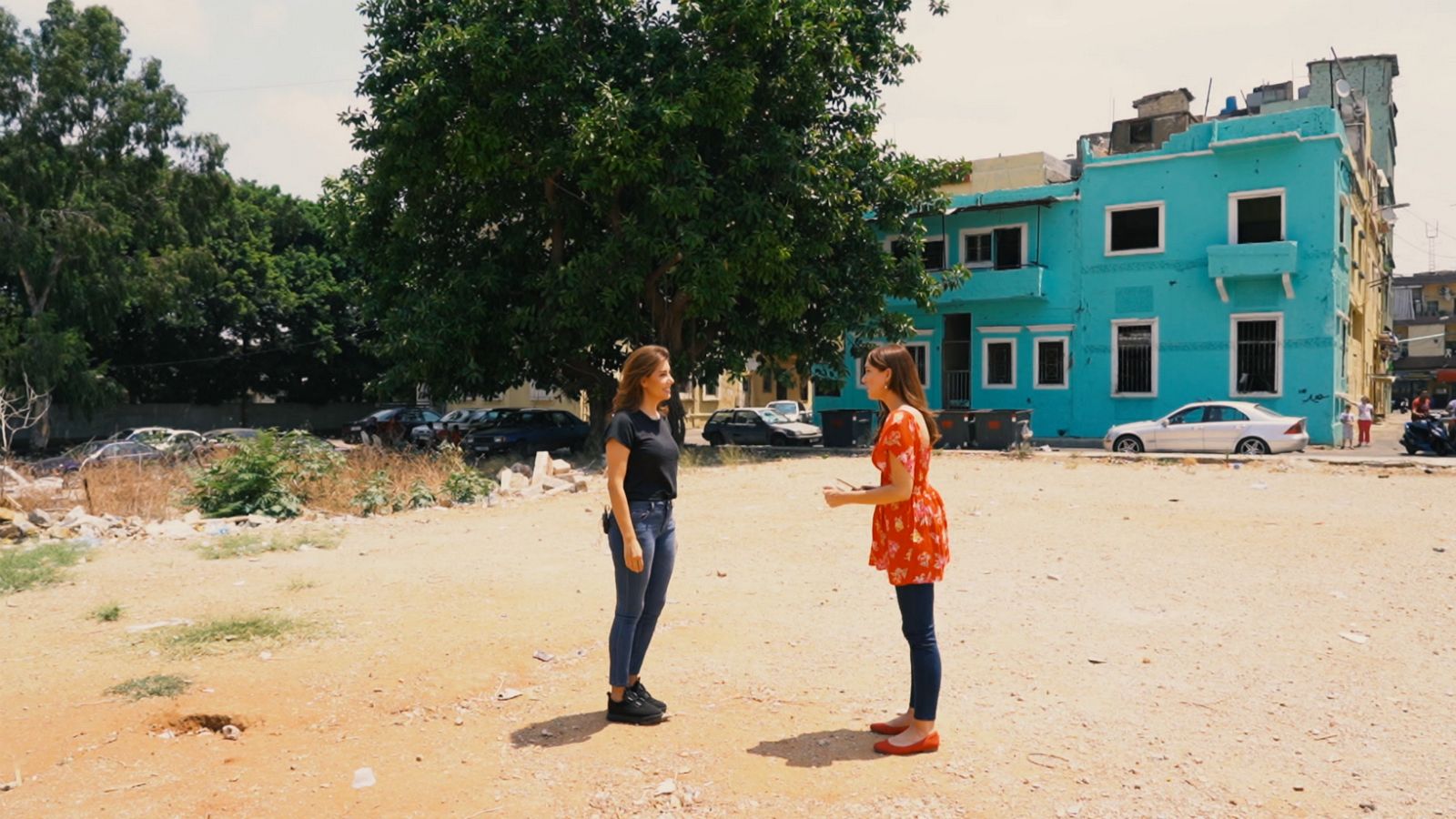
Paula Yacoubian speaks to Euronews’ Rebecca McLaughlin-Eastham
A COUNTRY IN ECONOMIC CRISIS
Lebanon’s social and economic woes include the highest number of per capita refugees in the world.
The country also has one of the heaviest debt burdens globally at around 150 percent of GDP.
Yacoubian lays blame, for what Lebanese officials are calling a state of economic emergency, at the feet of the country’s ruling elite.
She’s driven to improve the quality of life for her, often underprivileged, constituents and she’s tackling a myriad of Lebanon’s challenges, not least a rubbish crisis which has plagued the country since 2015.
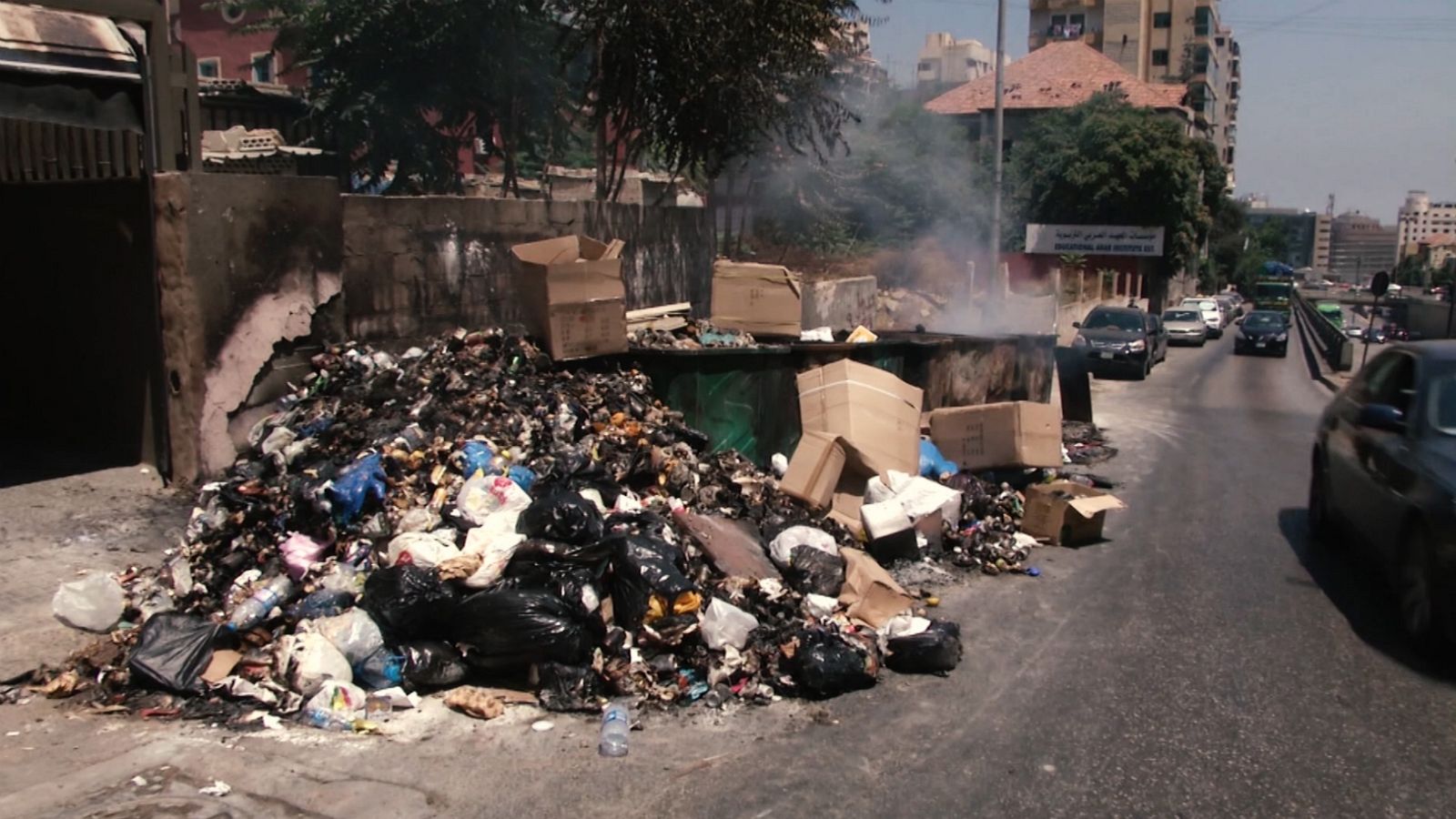
Lebanon faces a garbage crisis since 2015
As a result of the capital’s main landfill closing, mountains of toxic refuse has continued to pile up in residential streets, often being burned to harmful effect.
Rebecca McLaughlin-Eastham spent a day in Beirut with the new lawmaker to find out more about her political ideologies and the challenges of her new role.
Q&A:
Rebecca: Paula, following 25 years in journalism you became completely disillusioned with the media. You lost faith. Has anything changed? And do you believe you have more power now, as a politician, than you did speaking to millions of people in their homes through the television?
Paula: Currently, I’m into politics, because I think this is where I can play a bigger role in changing things. I’m just trying to convince people that we can do something different and that we deserve better. People don’t know who to vote for and how to vote. Either they stay in their houses or they go and vote for the same people – thinking that they’ve changed. But it’s the same leader, the same party.
Rebecca: With a grass roots movement like yours [Tahalof Watani], it is a brave fight to take on the old guard, the political elite. Are you not frightened in doing so?
Paula: I feel afraid right now because I’m fighting the mafia and I’m hurting their pockets. When you hurt the pocket of the mafia, this is where you fear for your for your life.
So, I’m comfortable in what I’m doing, at the same time I know it is dangerous. If I gain more popularity, yes, they will end up by killing me.
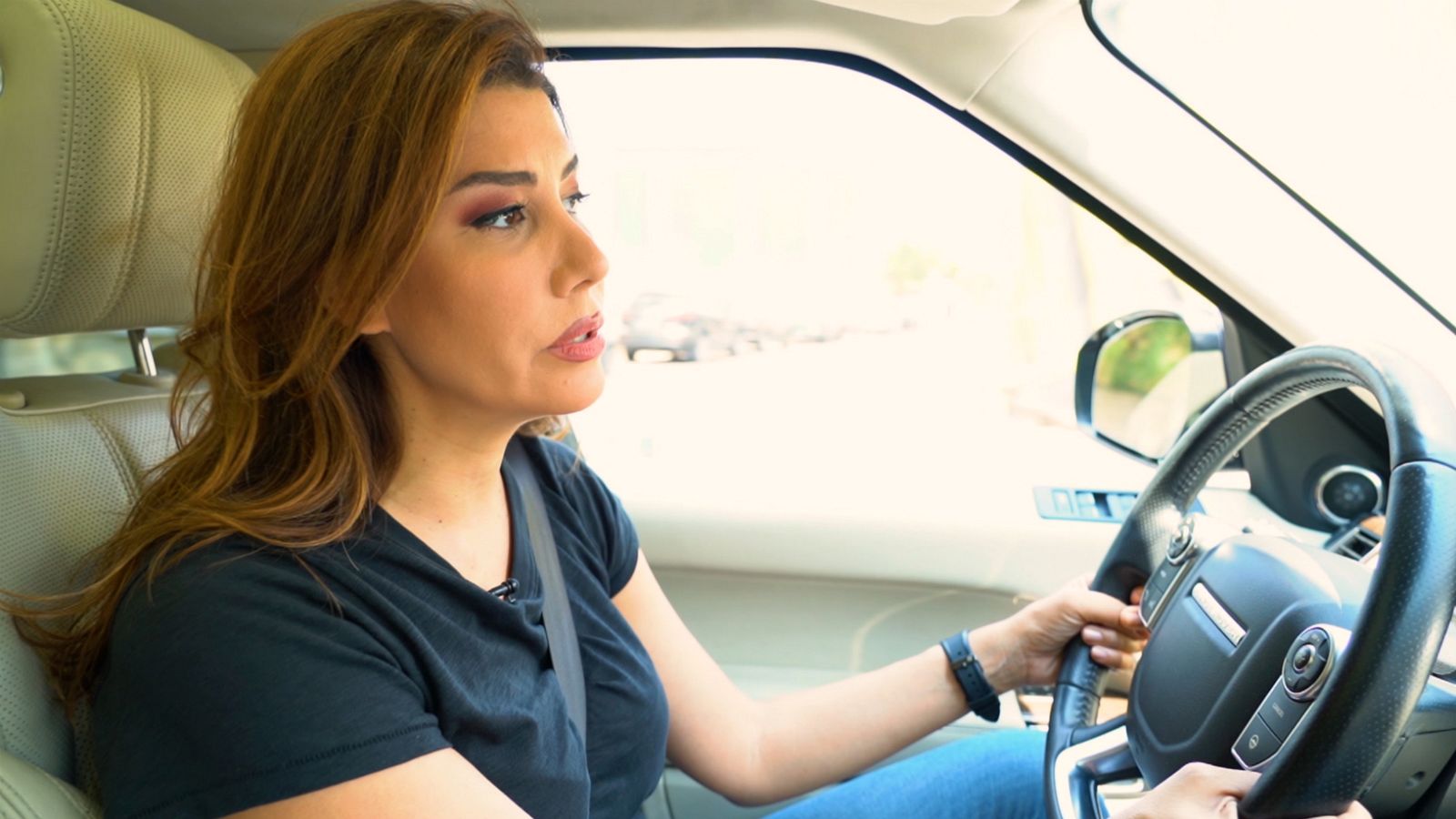
Paula Yacoubian speaks to Euronews
Rebecca: You’re one of only six female parliamentarians out of 128 members in government. What is preventing more coming to power, what are the barriers to entry as you see it?
Paula: I’m a fierce fighter for the quota system, because I think this is the only way to have real women representation.
The quota is to rectify a historic injustice towards women, when years ago she used to stay in the house. If the [political party] leader wants to look good, he will place a woman [in a role] and give her votes – just to look good.
Rebecca: You say that women in Lebanese society today are oppressed. What exactly do you mean? Just in the world of work or in other ways?
Paula: Women in Lebanon are oppressed. You start with the law and it goes back to the family, to the values.
I presented a law to remove the reservations of Lebanon from the Cedaw convention [The Elimination of All Discrimination Against Women] but unfortunately it’s sleeping in the drawers of the parliament.
I hope to one day see a woman president in my country, the head of the army. And we do have a very powerful woman right now, she’s the Minister of Interior and I think she’s doing an amazing job.
Rebecca: We stand here in Karantina, a place you often visit – an underprivileged part of Beiruit. Lebanon has so many social problems; from rising unemployment to constant electricity outages, to the garbage problem – which is an issue very close to your heart. How have you gone about trying to solve it?
Paula: This is one of the poorest parts of Beirut and this is where they intend to plant the incinerator for Beirut. This is a big thing in Lebanon right now because we don’t think incinerators are good for us.
You don’t have dignity when you see garbage everywhere in the streets. And there’s nothing you can do, just because of some mafia who want to make money out of the garbage crisis.
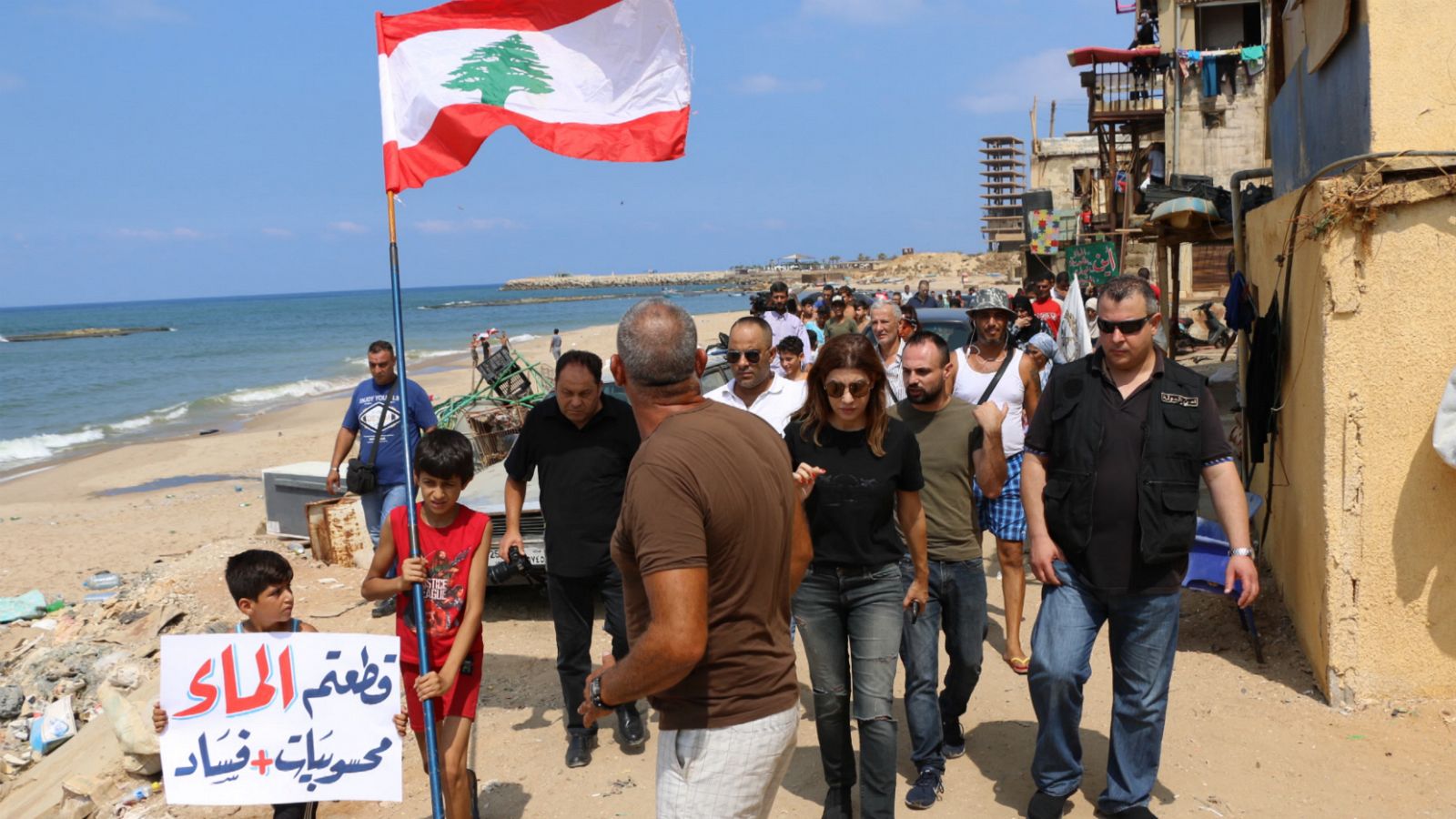
Paula Yacoubian in one of her rallies against Lebanon’s garbage crisis
Rebecca: Talk to me about the biggest concerns here. What are the people living in the houses behind us telling you they want week-in, week-out?
Paula: The biggest concern is the economy, people want jobs. People want clean air to breathe, people want to have a future – to send their kids to school. And the state has made the country like a welfare system – people wait for the handouts off the political parties.
Rebecca: There aren’t enough jobs to go around. The resources are scarce and Lebanon has a refugee situation which is threatening to be at crisis level. How do we reconcile the two problems – is there hope?
Paula: The refugee crisis weighs a lot on Lebanon but this is not the problem. The problem is the political cast, we are ruled by a bunch of thieves. And these thieves were doing the same, even before having the refugee crisis.
Rebecca: I want to ask you about wider regional politics, and caught in between the tensions of Saudi Arabia and Iran, what do the coming years look like for Lebanon?
Paula: Scary. Because this country is divided, not only is the division sectarian, it’s also a division within the regional spectrum.
What I try to tell people every time I’m on on stage is that foreign countries are not charities. They have their own interests here, they spend money because they have an agenda.
Our Lebanese agenda is the most important – our Lebanese agenda is not to listen to anyone and not to do what’s good for our country.
And because of this failure, they [politicians from other parties] are helping us reach a bigger audience faster – an audience that’s from all religions.
Let me give you just one index from the elections. All the parties that you see were elected by their sectarian base – the Druze elected the Druze, the Christians elected the Christians and the Shia elected the Shia.
We are the only political movement that was elected, 48 percent Muslim, 52 percent Christian – and this has never happened before in the country, not since I was born.
SEEN ON SOCIAL MEDIA
Valentina Dubai and her friends gathered for a clean-up in Lebanon’s Baytroun beach.
View this post on Instagram Happy faces during yesterday’s beach clean up in Batroun! I feel grateful for my colleagues at Bel who took team building to a whole new level. You can do it too; propose beach cleanups at work for your next convention or team event. In just an hour we filled up more than 20 bags of recyclables (plastic, cans, paper), it’s not enough and will never be enough to clean Lebanon coastline, but through this kind of initiatives we are doing our part and we shift the mentalities shway shway. After collecting plastic garbage from your own hands, you start realizing your impact as a consumer. We are not perfect and that’s okay « we don’t need a handful of people doing zero waste perfectly, we need millions of people doing it imperfectly » – let’s start somewhere and be proud of it! . . . #beachcleanup #teambuilding #recycling #beach #plastic #balaplastic #garbage #lebanon #batroun #activist #doit #action #responsible #doyourpart #colibri #zerowaste #becausewhynot
A post shared by Why Not Green (@why.not.green) on Jul 20, 2019 at 12:54am PDT




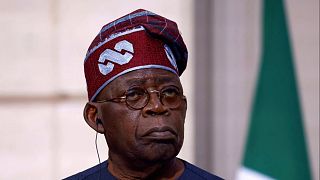
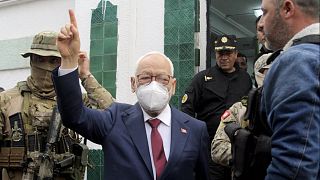
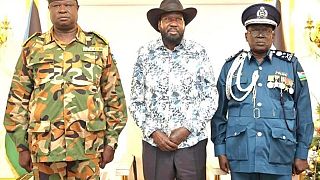
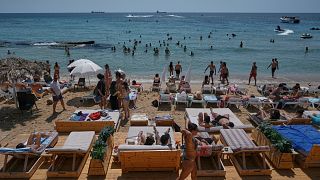
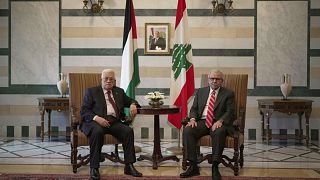


01:30
Nigerian singer Tems launches Leading Vibe Initiative to support women in music
02:20
In Morocco, women keep the art of traditional rug-weaving alive
02:17
Uma Thurman returns to her action roots in The Old Guard 2 opposite Charlize Theron
01:29
Ramaphosa concludes G7 summit visit, no meeting with Trump
00:53
Former French president Sarkozy stripped of Legion of Honour medal
01:02
Tidjane Thiam Confirmed as PDCI President by Ivorian Court